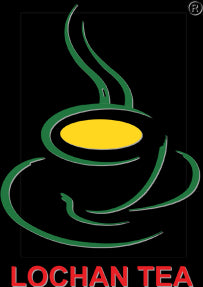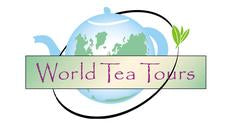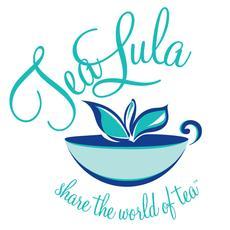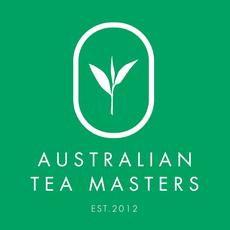
 Interview
Interview
with Ip Wingchi
Q: Mr. Ip, thank you for meeting today. You are a very important person in the tea industry and somebody I think our members should know more about.
A. Thank you. I’m very happy to know you have the International Tea Cuppers Club. It’s a very interesting idea and people can learn and communicate, can exchange ideas in this. So I’m honored to be interviewed.
Q. First, could you tell us, how did you get into tea? What’s your background and original interest?”
A. Accident. Actually I was trained to be an artist. I studied in the Fine Arts department in ChineseU. Tea is my long time hobby. You know, for Hong Kongnese or Chinese people we started the tea experience since childhood. I drank tea a lot, especially the milk tea, and also the Chinese tea. And, without any special prejudice or special idea about that. Until one day, in the 1980s I had the chance to visit the Chinese farms. In the middle of the 1980s, because of Deng Xiaoping’s policy, so we were allowed to visit. We were the first group. Because we are Chinese, we were living in Hong Kong. So I got to know one of my staff, at that time, I’m doing the tea for business. This is another important page in my life.
I make the small Yixing teapot become the international famous tea ware, in 1980. So, by accident I got to know a gentleman whose family is an Anxi, tea farmer. So I paid a visit to his home. And then I tried the tea. I was much surprised by that tea because it was so much different from the tea I drank in my cups, or I bought in the shops. Because in that time, everything is controlled by the National Import & Export Corporation. And then the tea was only in two names. One was Tie Guan Yin. The other was Sek Jong. Sek Jong means oolong. We didn’t have different varietals or something like that. And then, they are classified into 1, 2, 3, 4, something like that. So, like, K100 is the best Tie Guan Yin. And then the second one is K101. So everything is in a standard quality. And then I went to the farm. I felt - tea has life! All the teas are different. They have different varietals, made by different farmers, and every day the weather is different. The process, timing, everything is not fixed. And then you can find that tea is just like an individual. They have characters. They have life. They have emotions. They have temperament. So, oh, I’m so amused by this discovery. And then I brought some tea back home to Hong Kong. And then I also shared with my friends. I think sharing is very important to me on tea. So I shared with my friends. My friends are all surprised by the tea I got. So, and then I tried to buy some of it, some tea like this. So I invented a name called “Single Day Harvest.” That means not blended. This group of tea they pick in the morning, and they process it in the whole afternoon. And then they finish on the next day. And then I just keep it. No matter it’s good or not good. So, I am very interested about the conversation we just had before. You have to understand the defects. [referring to the ITCC Production Defects Cupping Event] Actually the defects are very important. It makes the tea different. So if everything is perfect it is something similar. But because you can’t be a perfect person, tea can’t be a perfect tea. So you have different variations, which make the tea more interesting. Some tea is better in taste some tea is better in aroma and something like that. So I love this. And then, I think I have some kind of linkage with the tea. And then I started the business by very small quantities. Of course you can not make money from that but it is for your interest, for your passion and for sharing with your friends. You kind of love that job. And then, in 1991 I started Lok Cha as a business. So I continued this concept of “Single Day Harvest” and it was accepted by the people. You know, it is very difficult to get into the tea business. Because there are so many shops, so many companies. And people like old brands. “You are a new comer, you are nothing” you know? So, I’m very lucky and then I get a point to get into the business by introducing this concept. And so at that time people find my tea is very different from other companies. So, I can survive in the beginning. So this is how I get into the tea business.
Q: You spoke a little bit about this but maybe a little bit more on what was the tea industry like when you started. You said it’s difficult and there where restrictions from China. What were the obstacles you had to overcome in the beginning in the tea industry?
A: Actually, nobody knows the story at that time, because, China is exercising a new policy. They return the land to the farmers. So each farmer has the right to grow their own tea, make their own tea. So the tea is suddenly grown up, blooming. And people will take more care of their own tea to improve the quality because you have competition. So the point is that at that time the scale is very small. Not very steady. So you have to travel a lot to the tea farms to communicate with the farmer, to look at the tea and something like that. You have to spend a lot of time. And so at that time, tea is not so complicated as today. Only a few varietals and only a few names in the tea. When you got to Anxi maybe you have 5 or 6 different tea only. Depends on the varietal like Mao Xie, Rou Gui, Mei Zhan, or Ben Shan something like that. These names are not known outside. Outside China they are all called oolong. So when you get there you have different kinds of tea, maybe 5 or 6 like this. And then it all depends on your palate. You have to taste, you have to check and you have to communicate with farmers. What tea you like and then they make into your own, your own style. So at that time I feel we are more close to the farmers, they are more close to the land. They are more close to the leaf itself. It’s more interesting. Of course today it is more complicated. The tea industry evolves, and then the volume increases many, many times. Actually China is the biggest tea producing country now. About 3 or 4 years ago it became the largest producing country. You have many, many varietals, many, many different styles. But, it all goes to marketing. The small tea farms vanished. They became bigger now. Or some companies invest, they collect, they do it the collective way. So, the tea is more sophisticated now and more like a commodity now. Not so interesting as before I must say. So, I’m still keeping my way, to travel to the small farms. Talking to them, finding some interesting tea, something like that.
Q: What are the changes you’ve seen from the beginning to now?
A: Of course, now we have more choice. And also tea is more expensive. Very, very expensive now. And because of the market changes, a lot of people are attracted by the aroma, by the taste of tea. So actually the tea drinking population is growing, especially in China. Before that, the Chinese people are poor in living so they do not have extra money to spend on tea. If they have some money they would spend on food, they would spend on clothes, or they would spend on TV, or refrigerator, and then the car, something like that. And now they have more money so they want to have better tea. And also because of marketing some branding is coming up in China. The competition is much more keen. And so I can see there is a lot of technology, a lot of craftsmanship, improvement in China. One of the important observations I have seen now is they do a lot of crossover. You can see a little bit in the tea competition. They make in the red tea way and put it as a Pu Er cake. And also they make the Phoenix oolong varietal to make into the red tea. A lot of crossover. And then the result is very interesting. I have tried a lot of this tea. Actually I have done this for two years. Last year and this year in Anxi. Experimenting to do some new varietal. It is produced by the research academy. They do some hybrid of different varietals. And when they are successful, they will put it into the market. So now some new tea trees are coming up. This is completely new, not in the history. They do it with some different method and different way. And so the result is very interesting. And also, I can see the localization is getting less now. You can have oolong everywhere. Before it is only in Anxi or Fujian or Taiwan. Now it’s everywhere. You can have oolong in Sichuan. And you can have oolong even from New Zealand or Thailand. Or even in America, I was told somebody tried, experimented to grow some tea in America. So I think that because of the transportation or technology, I think tea is very easy to spread out everywhere in the world. I think this is a very interesting place because some old tea farms already too old. The soil already is tired out. They need some rest. And then some virgin tea farm is not yet explored. And then you can bring some varietal, some technology or some craftsmanship to that area. And then you will make a new picture. In the future, tea will be a very common beverage. Everywhere in the world. Not Chinese, not Indian not Sri Lanka, not like this. Tea is Tea. A big family. Everybody can enjoy. Everybody can find his own favorite. So I think this is the future. And technology and transportation, business and all growing up and then they will integrate into one world. I think it will be this way.
Q: Where do you think the tea industry will be in the next 10 to 20 years?
A: I think because new varietals will come out. Before, for example in India they say they have “the Chinese bushes”, and “this is Assamica varietals”, and something like that. But in the future you will have 20, 30 not only 2. By some experiment, something like that. This is natural. I can see that there will be hundreds of them coming up. I was told by the Research Institute of Fujian, now they released about 10 new varietals. But they say in their laboratories there is a line of new varietals that will come out. So when they are successful, they will raise up new bushes. I can see the new technology will bring a lot of innovation in the tea industry, especially in the varietals. And I think, China is very powerful, is very sophisticated in this side. Because the tea industry is the Chinese culture. And this is a Chinese beverage. The second thing is, as I say is, the localization will finish. And then we will explore some new places, new soil, new farms, new plantations, and then you can grow very good tea. And also because people are more concerned with health I think tea is wonderful. There are more and more experiments showing that tea is very helpful for a lot of our health problems. For me my family, its always high cholesterol. My sister, my brother are not so good and I’m quite healthy I think. I drink a lot of tea. I feel more and more people will understand this. In the next 10 or 20 years the world is getting smaller and people will share something good together. And, I think this is tea.
Q: That’s well said. I’ve had the pleasure of being at the Lok Cha tea room near the Flagstaff museum in the park there. I think it has become perhaps an institution of Hong Kong tea. Could you tell me a little bit more about how you started that and more about Lok Cha and your passion about this place?
A: Lok Cha in Chinese means, Lok means “Happy”, “Enjoy”, Cha means “Tea”. So Lok Cha is just conjoined, Happy with Tea, something like that. So actually, at the beginning as I told earlier, sharing is very important in tea, so you have a lot of fun. As well in the Chinese circles we drink since the morning and in the afternoon at lunch, afternoon, in the evening even before you go to bed. So we drink tea all day long. And whenever you want to start something we have tea. We do any thing, first it’s “yum cha, yum cha.” So I think tea is a wonderful tradition, a wonderful beverage. And then it includes or comes with so much culture behind. So I think I want to promote some kind of life style and some kind of value of life to the people to be more relaxed, not so stressful and just enjoy a cup of tea. So I don’t want to go so deeply in any philosophical meaning. Sometimes if you go too deep, this is another method. I don’t want to say Japanese tea is too much for me but sometimes, the Japanese tea is a kind of philosophy. Of course it has its value but it is not everyday thing maybe. I think tea is a very simple thing. So I picked this name. I just want to share the joy of tea with other people. So, I started the business in 1991 because I found the Single Day Harvest tea. And just want to share with my friends. And then gradually, gradually it developed. I like to travel to the tea farms, like to stay with the tea farmers. And I learned my knowledge of tea from them. I did not come out from a formal university of agriculture of tea or something like that. I just learned from the real life. I learned from the real thing. So, I spent a lot of time staying with the tea farmers. I learned how to make tea by myself something like that. And of course my background, I picked tea more as a culture. So I think this is something I can spend my whole life to do, to devote my whole life into this mission, to promote the culture of tea. Actually it means a very simple, very peaceful, very harmonious way to live. So I think it brings a lot of benefits to my life rather than to my wealth. So I can live comfortably, everyday. Before, I wore a tie, a suit and now I wear Chinese clothes and everything is so comfortable and so relaxing and I think this is wonderful. And I find a meaning in tea. And also maybe I am very lucky. Lok Cha grows very well. And I insist to this kind of philosophy to share tea, also share the joy of tea with friends so Lok Cha continues to be a very humble shop. We do not look for very expensive Pu Er in Hong Kong. We aren’t looking for some very big spender. I just want tea that’s interesting, a good tea, money’s worth, health to my friends. So this is my concept. And very lucky this concept is acceptable to the people.
Q: One final question, what would be your suggestion for someone who is starting out in the tea industry, the tea business now. Maybe they want to get into that. Do you have any suggestions or helpful hints or comments?
A: Look before you leap! [Laughing] Because there are too many people like tea, because tea is such a wonderful thing. Even very romantic and very passionate. You do a lot of traveling, seems wonderful life. But I have to advise the people, tea is a very difficult business. Very hard business. So do not only look at the beautiful side of the tea. You have to also go to the practical side of the tea. So visit the farmers, visit the tea farms, understand the industry, and there’s a lot of things to learn. I think you’d have to spend your whole life to learn about tea. Of course, the basic important ingredient of making a tea business is your passion, your love of tea so you can overcome the frustration of the business, the hardship of the business. And, if you have the passion, have the patience, this can be one of your joys, or one of your achievements. Because, you overcame some difficulties. I think the tea business is a little bit like a flower shop. It looks so beautiful but actually its hard work. So don’t look just at the beauty of the flowers. You have to think, “how to make it work.” It is so difficult. You have to do a lot of work. I see a lot of young people they think “oh, a tea shop is very easy”. They just buy some tea and sell the tea. They don’t have that kind of spirit. They don’t have that kind of core part. You need some philosophical part; mentally and spiritually also you need some practical part. You have to study to understand. This is not easy so, “look before you leap”, to study more. So I see all the good tea businesses, the good brands, they are 100 or 200 years of history, and, generations of wisdom and knowledge. It is not easy to do that. Tea is still a new business, especially in the western world. Every month I receive some enquiry. “Can you supply me some tea?” Usually, I say “no”. This is not because I don’t want to do business I also want to give them a good advice. Please come to drink tea, not only buy tea and sell tea. So you have to enjoy the tea first, understand the tea first, know the tea first before you get into the tea business.













